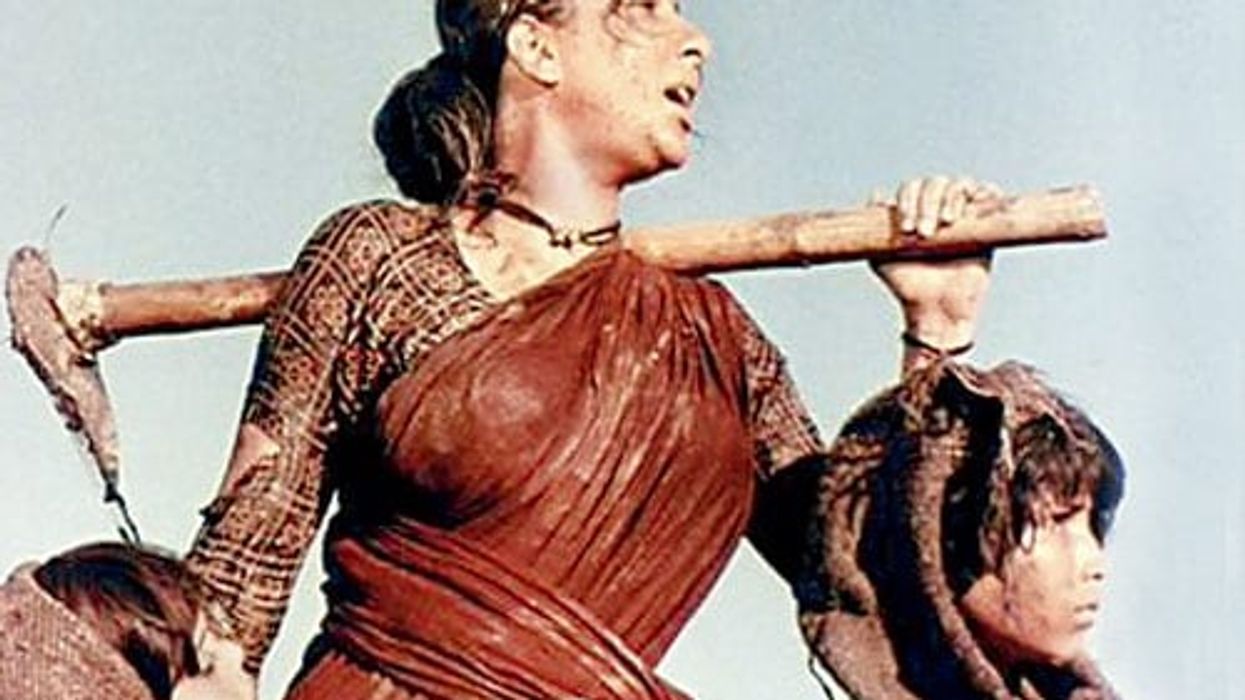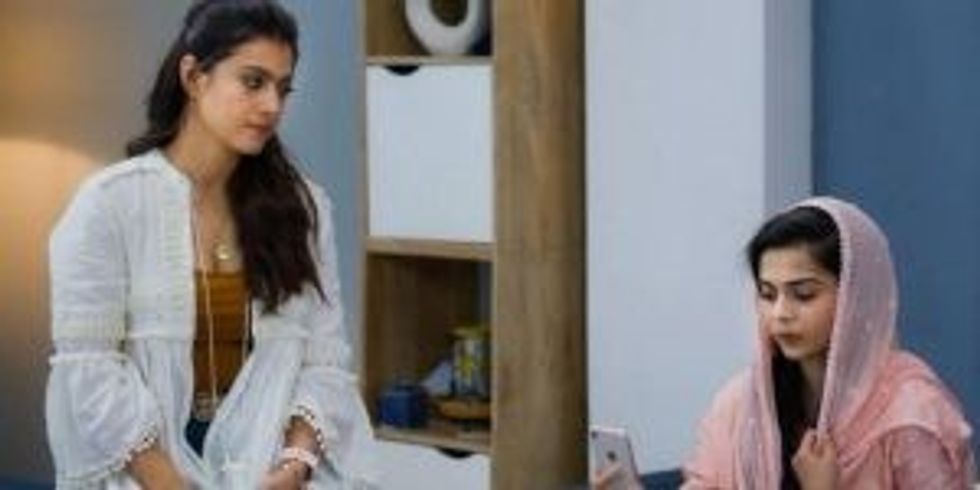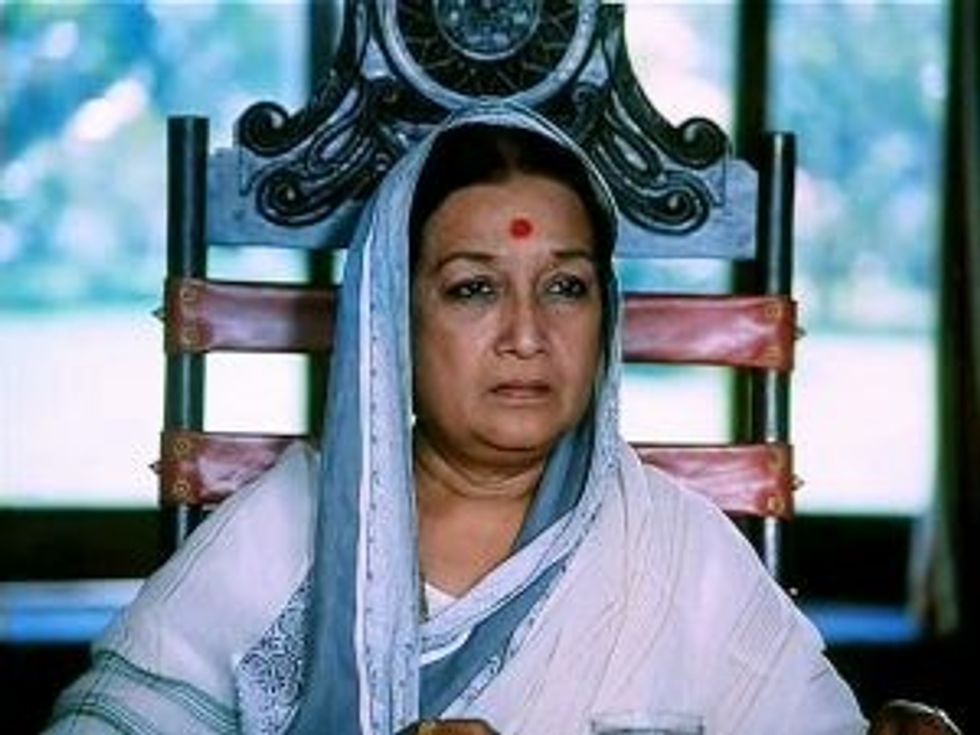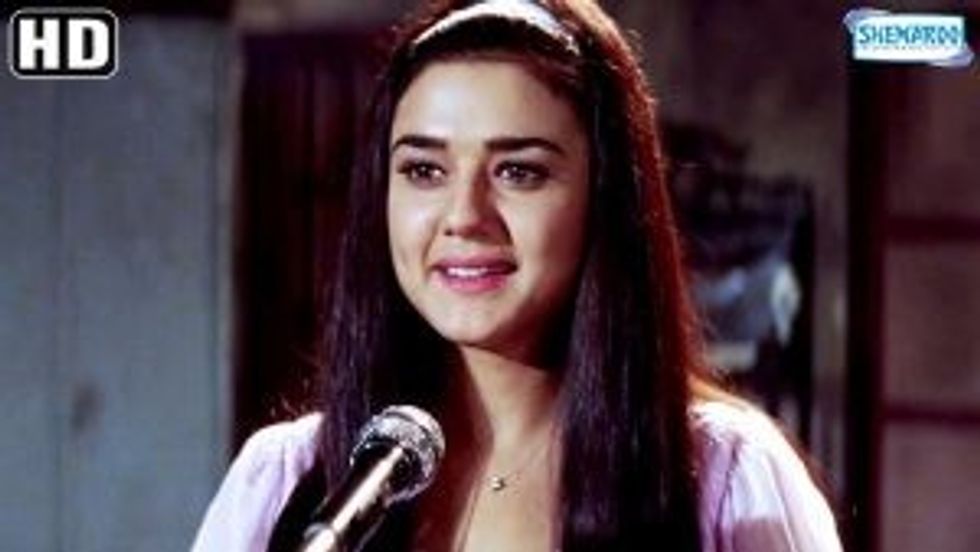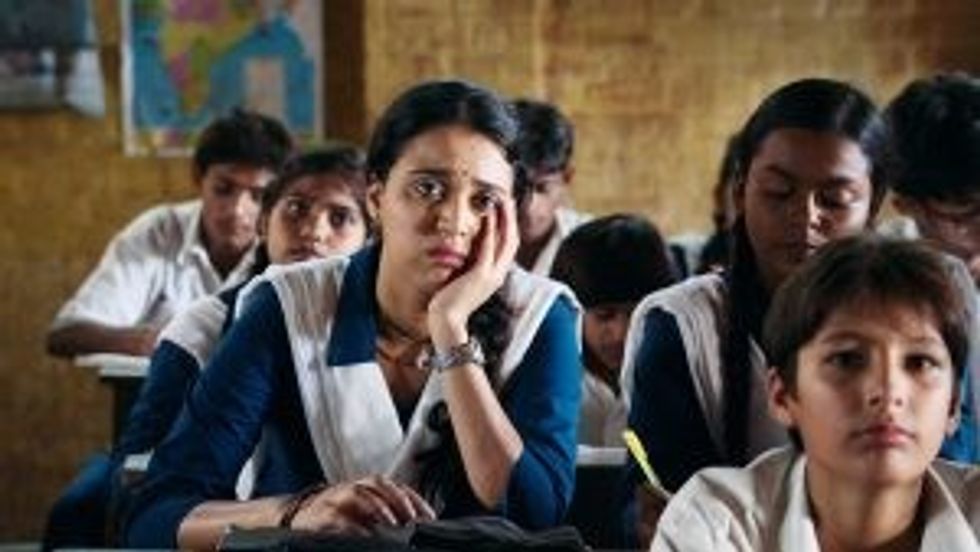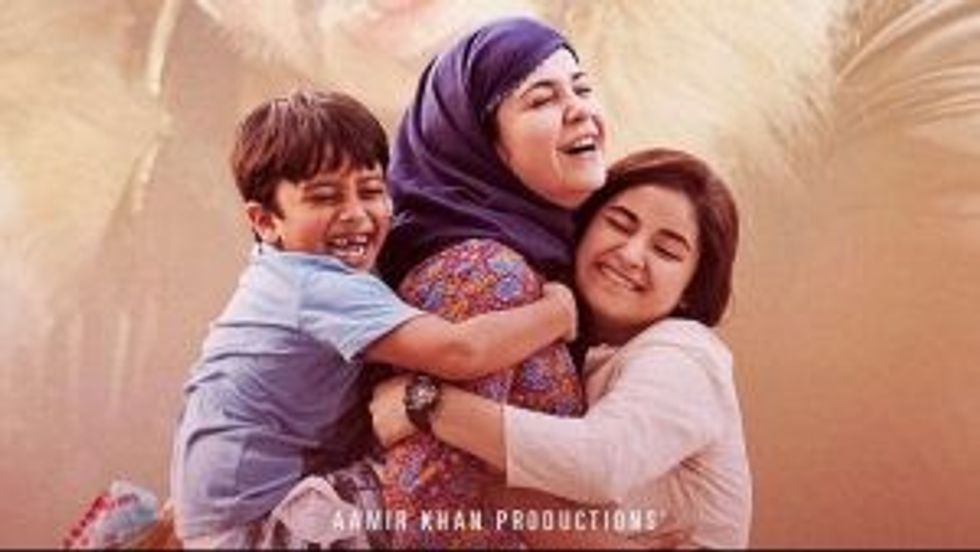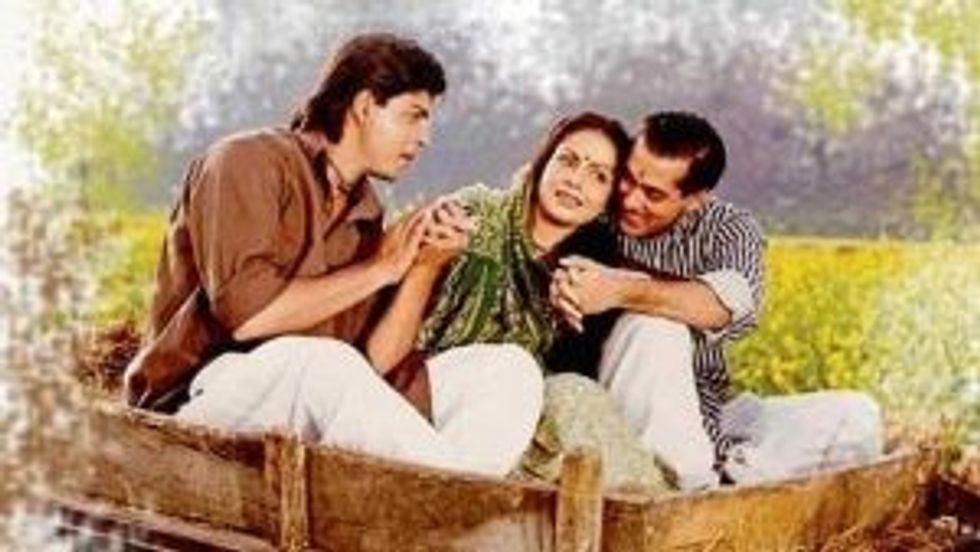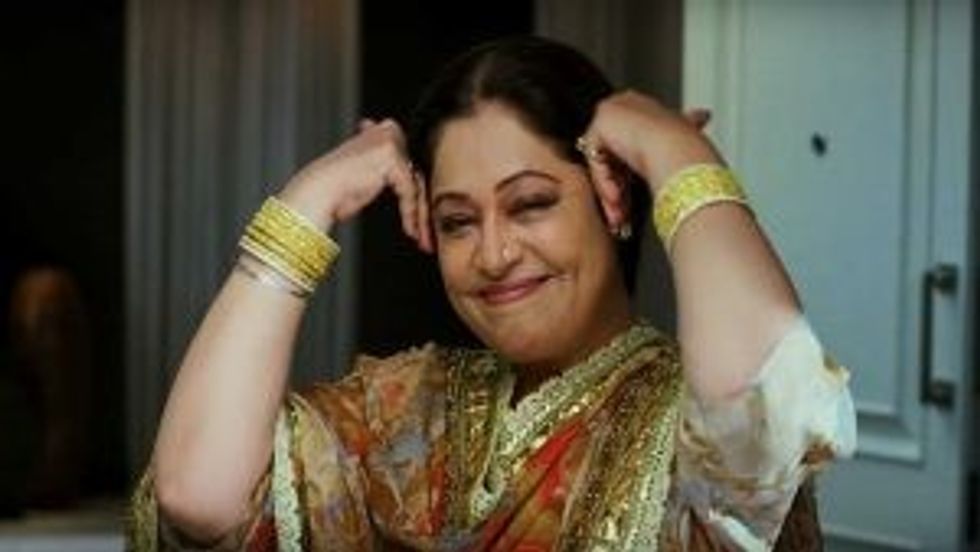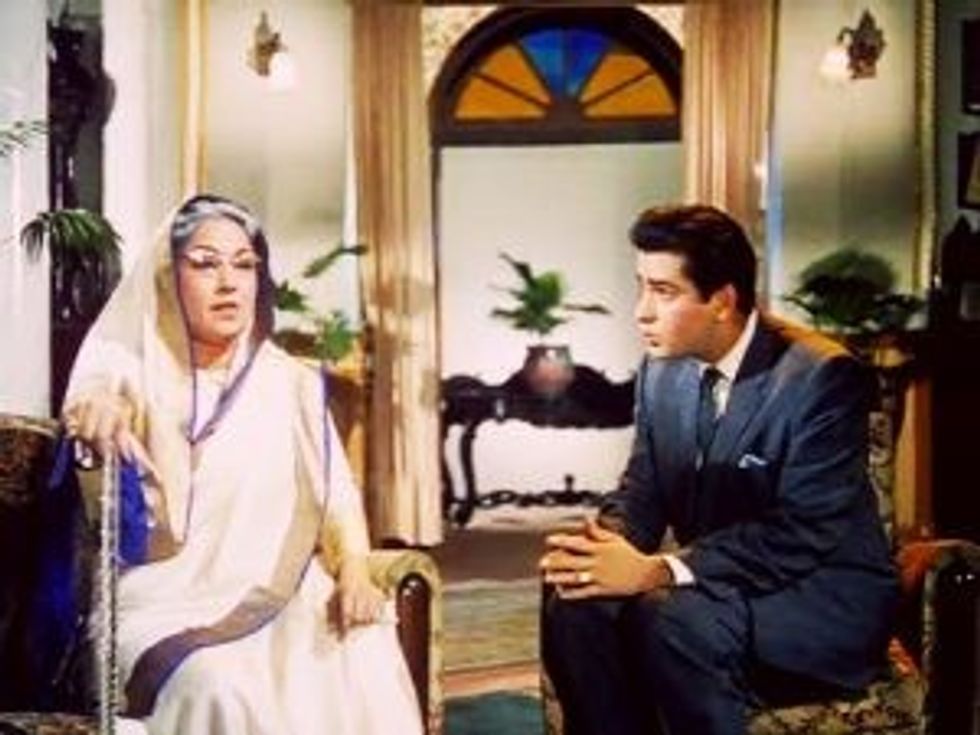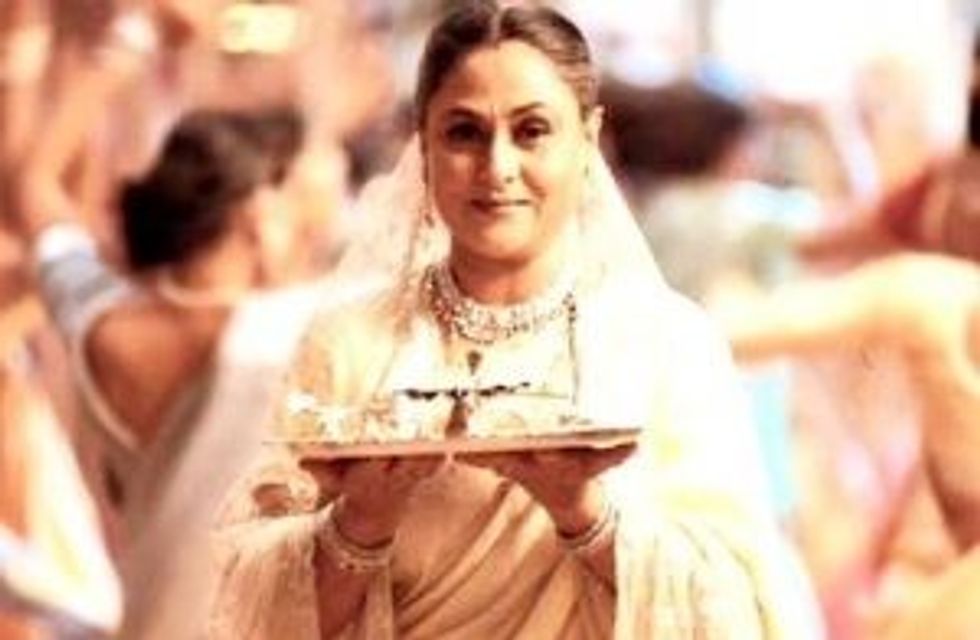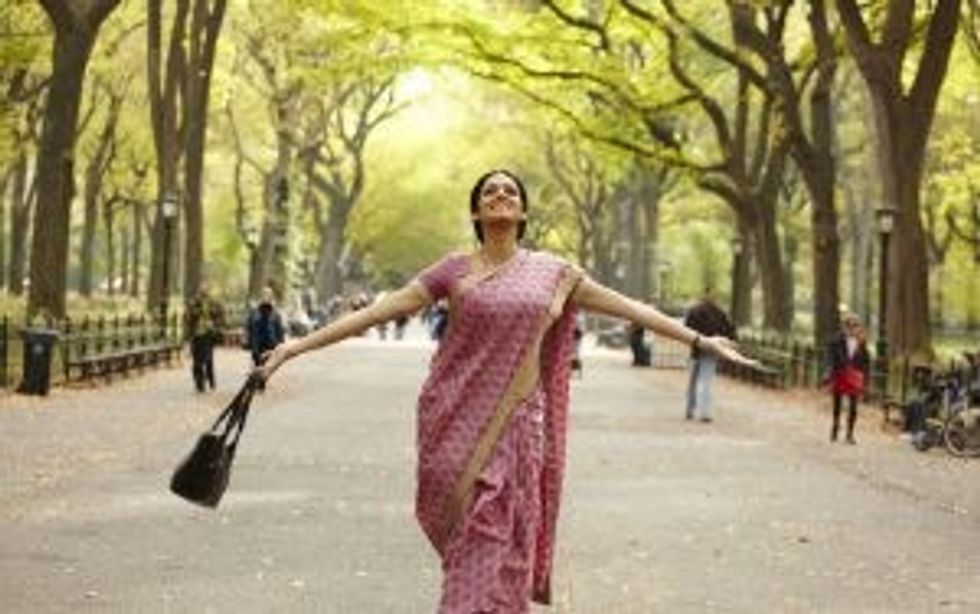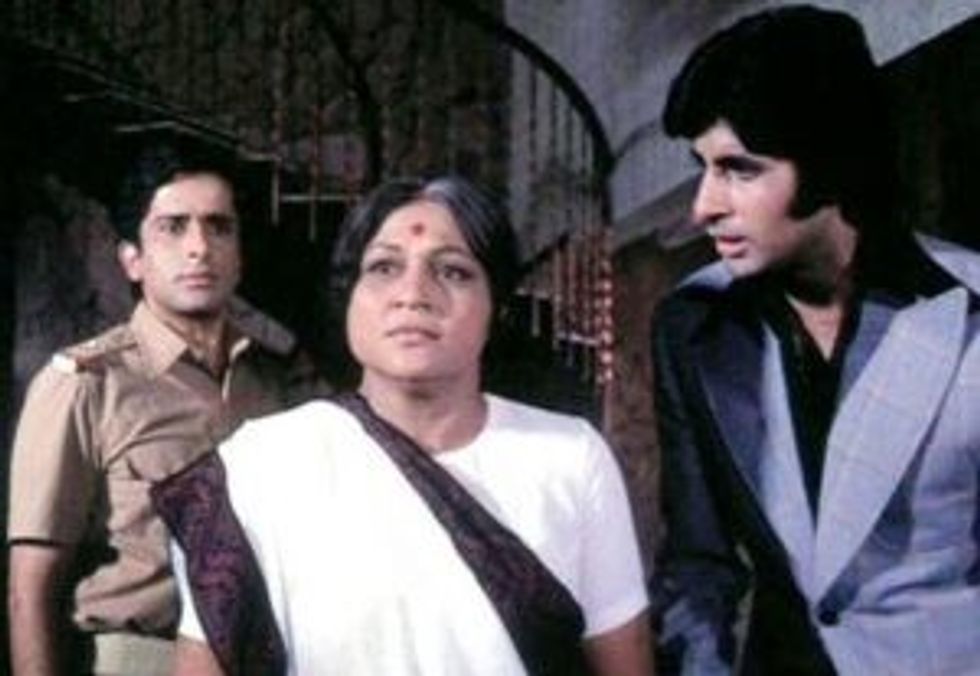A COUNTDOWN OF THE BOLLYWOOD SUPER MUMS WHO MADE A MARK
by ASJAD NAZIR
BOLLYWOOD has gifted us many memorable mothers across the decades in a wide array of cinematic genres and showed off the full rainbow of emotions.
To celebrate Mother’s Day, which falls on March 14 this year, Eastern Eye went back through top movies to do a countdown of 20 most memorable on-screen Bollywood mums, with one film per amazing actress. The result is the most marvellous matriarchs in great films, to add to your lockdown watchlist, especially on Mother’s Day.
20. Anuradha - Tribhanga: Tedhi Medhi Crazy (2021): The first great Bollywood movie of 2021 sees Kajol play a short-tempered woman, who has a difficult relationship with her mother, which brings the relationship with her own grown-up daughter into sharp focus. The cross-generational drama is one of the best mother-daughter movies made in Hindi cinema.
19. Sunita Kapoor – Kapoor & Sons (2016): Actress Ratna Pathak has brought a sophistication and contemporary edge to the mother characters she has played. In this acclaimed film, she plays the mother to two grown sons, trying to keep her warring family from fracturing.
18. Nirmala Gupta – Khubsoorat (1980): Dina Pathak had a long, distinguished career as an actress and will always be best remembered for her motherly roles. She played a disciplinarian really well and did that in this classic comedy of a strict mother, who controls everything her children do.
17. Radha – Aurat (1940): Director Mehboob Khan made this classic film of a single mother (Sardar Akhtar) battling against the odds to bring up her children. The legendary filmmaker would then remake this massively influential film in the following decade as India’s first Oscar nominated film Mother India (1957).
16. Priya Bakshi - Kya Kehna (2000): Preity Zinta perfectly plays the lead role of an unapologetic single young student who gets pregnant and decides to have the baby. She then juggles pregnancy with the social stigma of being a single unmarried mother and trying to rebuild her life.
15. Soudamini - Amar Jyoti (1936): She may be best known for playing the mother in Bollywood’s greatest film Mughal-e-Azam (1960), but it was her role in this early talkie that was path-breaking. The action-adventure saw her play a mother denied custody of her son, who vows vengeance and becomes a pirate.
14. Chanda Sahay - Nil Battey Sannata (2015): A movie that doesn’t get the credit it deserves is one of the best mother-daughter films ever made in Bollywood. Swara Bhaskar plays a single mother holding down multiple jobs to get her daughter the best education and when she starts slacking, joins the school as a student, with breathtakingly beautiful results.
13. Vandana Verma - Aradhana (1969): Although this legendary film is best remembered for the musical element and romance, at the heart of the story is the difficult journey of a single mother. Sharmila Tagore plays a mother who makes multiple sacrifices for her son, including going to jail, and perfectly shows the selfless nature of devoted mums.
12. Najma Malik - Secret Superstar (2017): The supportive mother who makes sacrifices for her children has been a recurring theme in Bollywood and one of the finest examples was the award-winning portrayal by Meher Vij in this smash hit musical drama. She plays a woman in an abusive relationship determined to give her children a better life, which includes supporting her daughter’s impossible musical dream.
11. Dr. Vidya - Paa (2009): When Vidya Balan does play a mother, she brings something unique to the role, which was perfectly demonstrated with her loveable character in Tumharu Sulu. Her most powerful turn as a mother was her multi-award winning performance in Paa, where she plays the devoted mother of a 12-year-old boy with a rare genetic disorder Progeria.
10. Durga Singh - Karan Arjun (1995): Legendary leading lady Rakhee made the smooth transition to playing a mother and specialised in bringing a loud, hysterical energy to the role. Her most memorable turn was in this action-drama, where she is convinced her murdered sons will return to take revenge and demands it loudly. They duly oblige by being reincarnated.
9. Mrs Acharya – Dostana (2008): Kirron Kher has delivered many memorable mum turns and was never better than in this comedy. She portrays a stressed-out mother, convinced that her son is in a gay relationship and that hilarious angst is perfectly portrayed in the song Maa Da Laadla.
8. Madhukala Choudhury - Hum Aapke Hain Koun (1994): Reema Lagoo regularly played the nurturing mother everyone wanted, including in this record-breaking drama. She plays the loveable mum of two daughters, who just has a warm energy about her and made everyone want to be in a family with her as the head.
7. Chandrashekhar's mother – Junglee (1961): No one played the strict matriarch better than Lalita Pawar in the golden age of Bollywood and what made it all the more remarkable was that she played characters much older than her. The blockbuster musical saw her play a strict mother, who doesn’t believe in love or laughter, and sees her go on a collision course with her son.
6. Mrs Kaushik – Badhaai Ho (2018): Perhaps the most unique mother character popped up in this original comedy-drama. Neena Gupta brilliantly plays a middle-aged mother with grown children, who unexpectedly becomes pregnant and this leads to a whole series of dramas. This ranges from a disapproving community to a grown-up son having a meltdown over it.
5. Nandini Raichand – Kabhi Kushi Kabhie Gham (2001): It is a wonder that acclaimed actress Jaya Bachchan hasn’t played more mother roles than she has. In the record-breaking film, she plays a mother who has a seemingly psychic ability and can feel the presence of her beloved son. When she reunites with him after a long hiatus, there wasn’t a dry eye in the house.
4. Savitha Khanna - Kuch Kuch Hota Hai (1998): No one has played the fun mother better than Farida Jalal and she did that superbly in films, including record-breaker Dilwale Dulhania Le Jayenge. But in Kuch Kuch Hota Hai, she went a step further by playing the role of a loveable mother, who helps her granddaughter reunite her son with a long-lost love.
3. Shashi Godbole - English Vinglish (2012): The fabulous feel-good film revolves around one of the all-time great mother portrayals in Bollywood history. Sridevi plays a taken-for-granted and often ridiculed mother, who decided to do something herself by learning to speak English. That simple act is not only transformative, but also puts across an important message.
2. Sumitra Devi – Deewar (1975): Whether it was Amar Akbar Anthony, Suhaag or countless other classics, no one in Bollywood history played the suffering mother better than Nirupa Roy. Her most memorable turn of a mother battling against the odds came in all-time classic Deewaar, where she brings up her two sons alone and has to deal with them being on opposite sides of the law.
1. Radha - Mother India (1957): Nargis carried the first Oscar nominated Indian film on her shoulders with her perfect portrayal of the most powerful mother character in Bollywood history. She shows the unbreakable spirit of a mother, who battles against all the odds, including a harsh environment and unforgiving society, to bring up her children alone. Then in old age, she is confronted with an impossible choice and finds the inner power to do the unimaginable.
